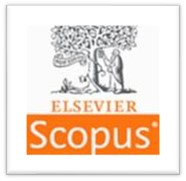Document Type
Article
Abstract
This study assessed whether video-assisted teaching increased the knowledge of,and resulted in a more favourable attitude among married men regarding No-Scalpel Vasectomy (NSV) in a selected village of 17,000 people,bordering Assam, in Nagaland, India. The study used a one group,before-and-after design. The participants were 30 married men who were selected through purposive sampling. Pre-tested and validated tools to assess knowledge and attitudes were used for data collection. The mean post-test scores, on both the knowledge and attitude scales,showed a significant increase from pretest scores (knowledge pre-test mean 11.53±3.41; post-test 21.23±2.18;attitude pre-test mean 20.87±2.64, post-test35.2±1.66).Thus we conclude that the video-assisted teaching programme was effective in increasing both knowledge and positive attitudes.
The study has implications for nursing education and practice. It could assist in developing positive attitudes, skills, and knowledge to better educate the community about NSV as a method of family planning. The study, however, has limited generalizability because of the small sample drawn from one community. Different interventions such as a Structured Teaching Programme and an information booklet could be compared with video-assisted teaching to determine the best ways for creating greater awareness about No-Scalpel Vasectomy.
Recommended Citation
Tungoe, A. Effectiveness of video-assisted teaching on no-scalpel vasectomy on knowledge and attitude of married men in rural Nagaland, India. Journal of Asian Midwives. 2016;3(2):55–68.



